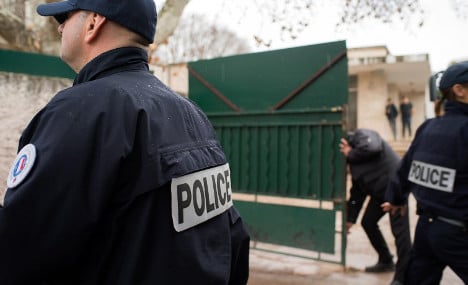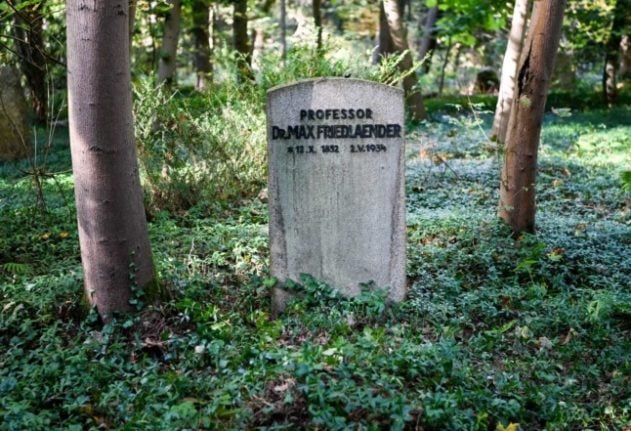Thankfully the 35-year-old victim of Monday’s attack escaped largely unscathed, with only minor injuries to the shoulder and hand, thanks in the main to the fact the machete was blunt.
He had been attacked by his teenage assailant from behind but managed to fight him off using everything he could including a copy of the Jewish Holy book the Torah.
On Tuesday the teacher's lawyer, Fabrice Labi, said his client had told him: “I had the feeling he wanted to decapitate me.”
“I told him to stop hitting me but he kept going and I didn't think I would get out alive,”, the teacher told La Provence newspaper.
The disturbing anti-Semitic attack, just metres from Jewish school Le Source, is all the more a concern to authorities in Marseille given the profile of the attacker.
He was a 15-year-old of Kurdish origin who is set to turn 16 next week.
Initial reports suggested he may have been mentally unbalanced after uttering confused and babbled words when picked up by police.
That scenario would have perhaps been easier for authorities and the French public to comprehend.
But it has since emerged that the teen appeared to be entirely in control of his premeditated violent act. He later claimed to have been acting in the name of Daesh, the Arabic acronym for the Islamic State group.
“He said several times he was acting in the name of Isis, because Muslims in France were dishonouring Islam and French soldiers were protecting Jews,” said Marseille prosecutor Brice Robin.
The youth even admitted to investigators that he planned to arm himself and kill police as soon as he is released.
The prosecutor said the teenager's family was unaware of his radicalisation and that he was a “good student” and achieved good grades.
They were stunned to hear of what had happened.
SEE ALSO: Despite all the soldiers France's Jews are living in fear
 (People stand in fron of the 'La Source' Jewish school in Marseille. Photo: AFP)
(People stand in fron of the 'La Source' Jewish school in Marseille. Photo: AFP)
It appears he was able to keep the fact he had been radicalised a secret in part because it had occurred rapidly and online.
“You get the sense that he does not have a full grasp of the fundamentals of Islam,” the prosecutor added.
As a result he was not known to intelligence services and had not been identified as a possible danger.
Neither was he known to police as he had no criminal record. Initial reports say he acted alone.
And countering those initial reports neither the teen’s family nor his school teachers suggested he had any kind of psychological troubles.
“Nothing suggested he could have acted in this way,” said prosecutor Robin.
In other words Robin admitted that the attack would have been basically impossible to predict and prevent, which will greatly worry both the Jewish community and authorities in France who are battling against radicalization.
The idea that he may have been a troubled teenager was swiftly rejected by Jewish organisations, keen to highlight the rising anti-Semitism France.
“Contrary to what was announced today in the press the anti-Semitic attack this morning was not that of someone unhinged,” said the Representative Council of Jewish Institutions.
French psychoanalyst Patrick Amoyel warned however that we shouldn't be surprised by the fact a teenager with no history of violence could commit such an act in the name of Isis.
“There is no real atypical profile among those radicalized,” he told BFM TV. “Those under 17 represent 20 percent of those radicalized by Isis.
“This phenomenon touches all social-cultural categories of the population including those completely normal and those more pathological,” he added.
Amoyel said the internet simply added as an accelerator towards radicalization but the main ingredients, perhaps anti-Semitism, identity problems or notions of conspiracy theory are mostly in place beforehand.
Monday's attack showed the extent of the task facing French authorities to try to prevent other teenagers heading down the same route to violence.



 Please whitelist us to continue reading.
Please whitelist us to continue reading.